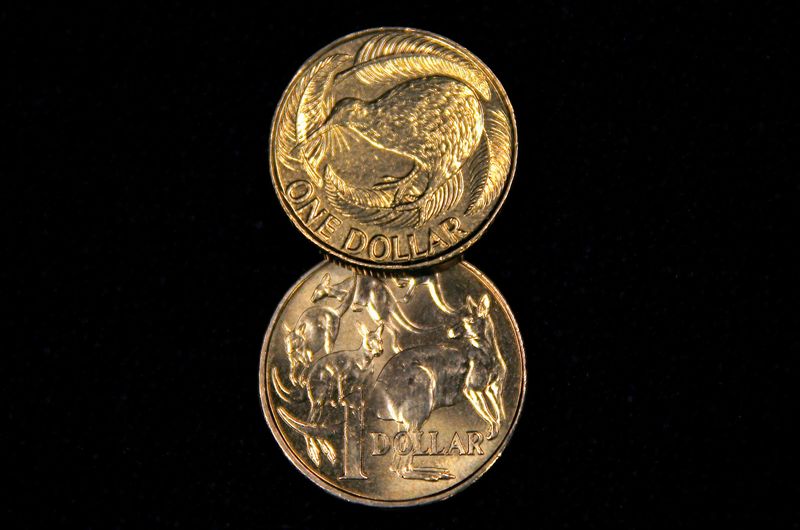
SYDNEY (Reuters) – The Australian dollar was pinned near three-month lows on Friday as weak U.S. data fuelled fears of a sharp slowdown in the world’s largest economy, sending investors to the embrace of the safe-haven yen and Swiss franc.
The Aussie held at $0.6501, having fallen 0.5% overnight to just above a three-month low of $0.6480 hit on Wednesday. More support lies around $0.6466, with resistance at $0.6580.
For the week, it is down 0.6%, the third consecutive week of decline, partly due to the unwinding of the popular carry trade where investors borrowed the low-yielding yen to invest in higher-yield currencies.
Against the yen, the Aussie hit a six-month low of 96.59 yen on Friday, which brought the weekly loss to a hefty 3.4%. It also scaled a six-month trough on the Swiss franc, fetching 0.5654 francs.
The New Zealand dollar had better luck and was holding at $0.5943, having finished Thursday little changed.
For the week, the kiwi is up 1.0%, largely due to gains against the Aussie as markets swung to price out any chance of an interest rate rise from the Reserve Bank of Australia following favourable inflation data.
Still, against the Japanese currency, it touched a 2023 low of 88.33 yen
Overnight, data showed U.S. manufacturing activity contracted at the fastest pace in eight months in July, while a gauge for employment fell sharply, indicating risk to the key payrolls report due on Friday are to the downside.
That slammed Wall Street and boosted bonds, prompting traders to bet there is even a 30% chance that the U.S. Federal Reserve could cut rates by 50 basis points in September as the economy slows. For all of 2024, more than three cuts have been priced in.
“With the market firmly moving to a mantra that bad news is bad news for risky assets and sentiment, where swaps are pricing an element of more emergency cuts, poor U.S. job numbers will not be digested well at all,” said Chris Weston, head of research at Pepperstone.
The shift has been echoed in Australia where investors are pricing in a 90% probability that the current 4.35% cash rate could be cut in December. Swaps also imply a total easing of 80 basis points by the end of 2025, more than doubling in a week.

Bonds, however, have had a good week due to the prospect of early rate cuts. Three-year bond futures rallied 7 ticks to 96.37, the highest since early April. That brought their weekly gain to a whopping 31 ticks, the biggest rise since July 2023.
Ten-year bonds also rose 6 ticks to a four-month top of 95.97, with the weekly gain at 28 ticks.
This post is originally published on INVESTING.


